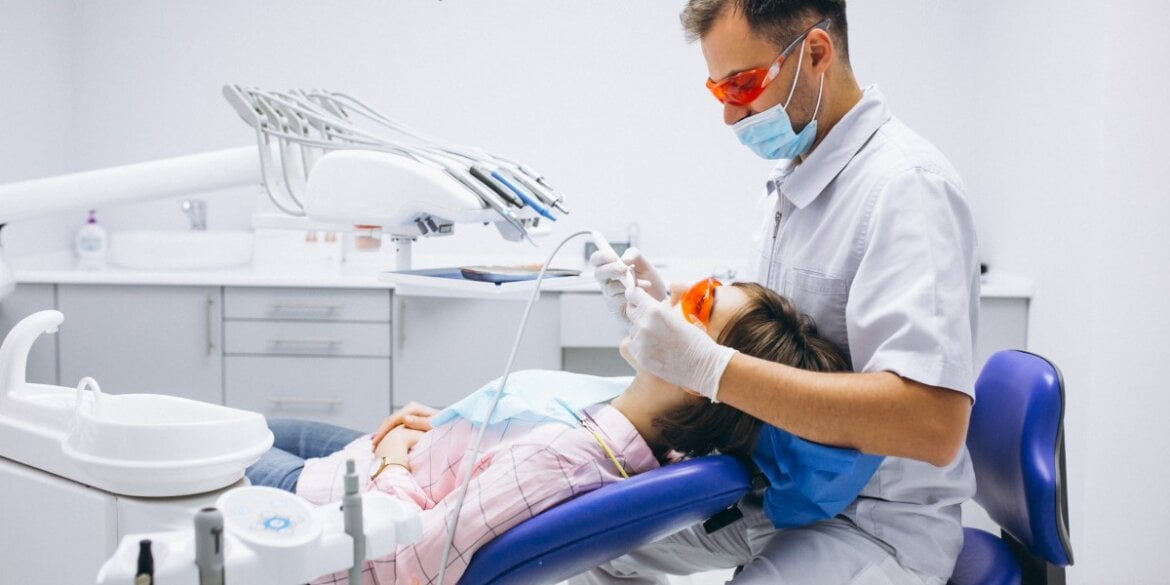Choosing the right dentist is vital for a healthy, radiant smile and preventing future dental problems. Whether you require routine cleanings, specialized treatments, or cosmetic enhancements, a skilled and trustworthy dental professional can significantly impact your oral health. Remember these key factors when seeking the best dentist in your area.
1. Check Qualifications and Experience
A qualified dentist should have the necessary education, certifications, and licenses to practice. Research their background, including their years of experience and any additional training in specialized fields like orthodontics, periodontics, or prosthodontics. A seasoned professional with a proven track record can provide higher-quality care.
2. Read Reviews and Testimonials
Patient reviews are a goldmine of information when it comes to assessing the quality of care and customer service at a dental office. They provide firsthand insights that can help you make informed decisions about your dental health. Look for reviews on Google, Yelp, and health-related websites to gauge patient satisfaction. Glowing testimonials highlighting the exceptional professionalism, warmth, and impactful treatments provided can empower you to make a well-informed decision.
3. Consider Location and Office Hours
Convenience plays a significant role when selecting a dentist. A practice close to home or work makes scheduling regular checkups easier. Additionally, flexible office hours, including early mornings, evenings, or weekends, can be beneficial if you have a busy schedule.
4. Assess the Range of Services Offered
Not all dental offices provide the same services. Some focus primarily on general dentistry, while others specialize in cosmetic or restorative treatments. If you’re considering cosmetic dentistry near San Antonio, TX, make sure the clinic offers services such as teeth whitening, veneers, or dental implants to meet your needs.
5. Evaluate Technology and Treatment Methods
Modern dental technology enhances accuracy, efficiency, and patient comfort. Look for practices that use digital X-rays, laser dentistry, or 3D imaging for more precise diagnoses and treatments. Advanced technology can lead to better outcomes and a more comfortable experience.
6. Check Insurance and Payment Options
Dental treatments can be costly, so verifying whether a dentist accepts your insurance plan is crucial. If you don’t have insurance, check if the office provides flexible payment plans or financing options. Some clinics offer discounts for cash payments or membership plans that reduce out-of-pocket expenses.
7. Prioritize Comfort and Atmosphere
A welcoming and stress-free environment can significantly impact your dental visits. Pay attention to the cleanliness of the office, the friendliness of the staff, and the level of comfort provided during treatments. Some offices offer sedation options for patients with dental anxiety, ensuring a relaxed experience.
8. Schedule a Consultation
Before committing to a dentist, schedule an initial consultation. This visit allows you to assess their communication style, office environment, and approach to treatment. A dentist who listens to your concerns and explains procedures clearly is a great choice for long-term care.
9. Look for Emergency Care Availability
Dental emergencies can arise unexpectedly, often resulting in sudden pain from a broken tooth or a lost filling. It is important to have access to a dentist who provides prompt emergency care. Immediate treatment can alleviate discomfort and prevent further complications, addressing the needs that arise during a dental crisis.
Final Thoughts
Selecting the right dentist involves more than just convenience; it is a search for skill, a soothing environment, and outstanding care. You can find a dental expert who genuinely meets your needs by exploring important factors such as the dentist’s credentials, the variety of services provided, and experiences shared by other patients. This careful choice will not only guarantee a positive experience at the dentist but will also be vital in maintaining your oral health over the years.
